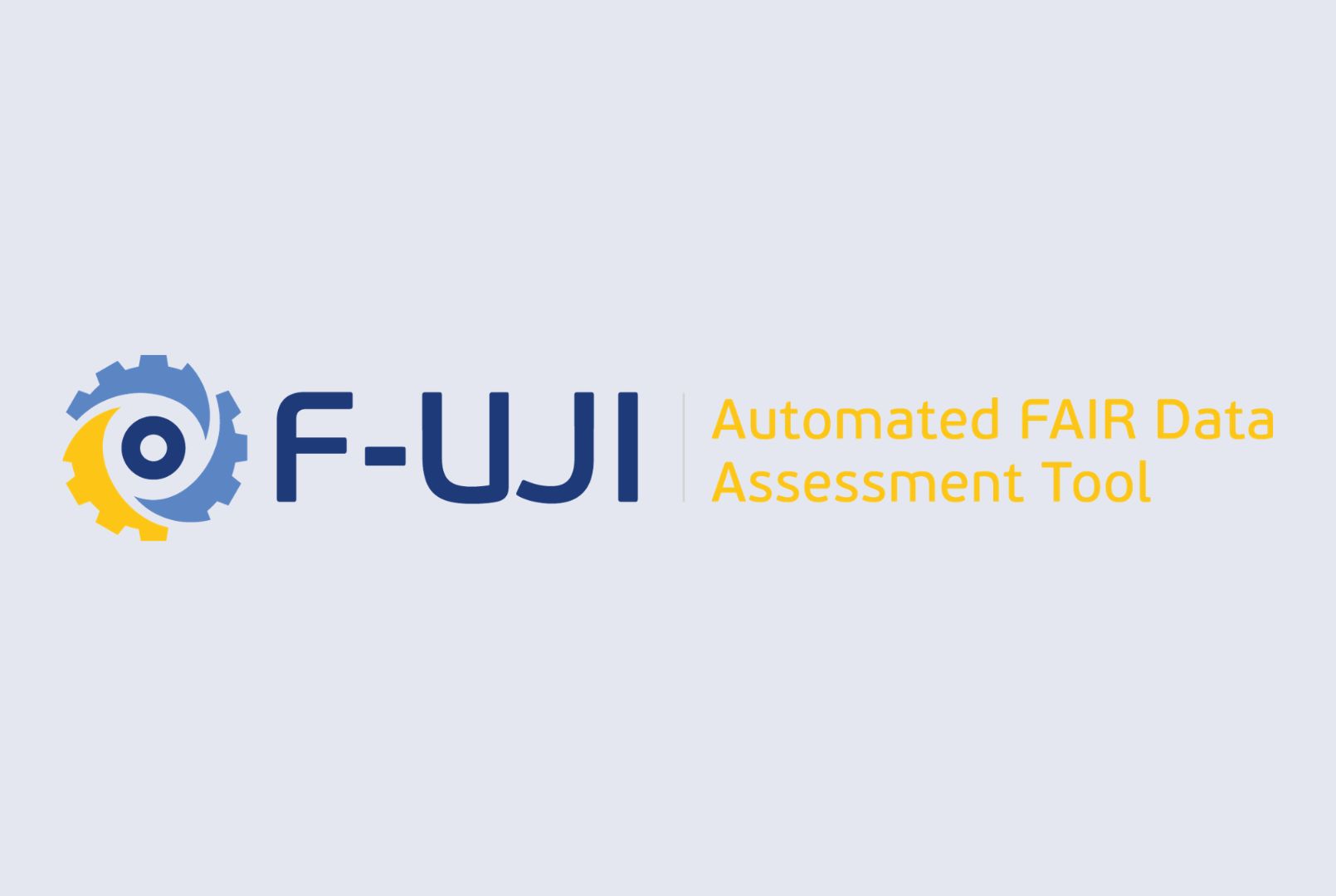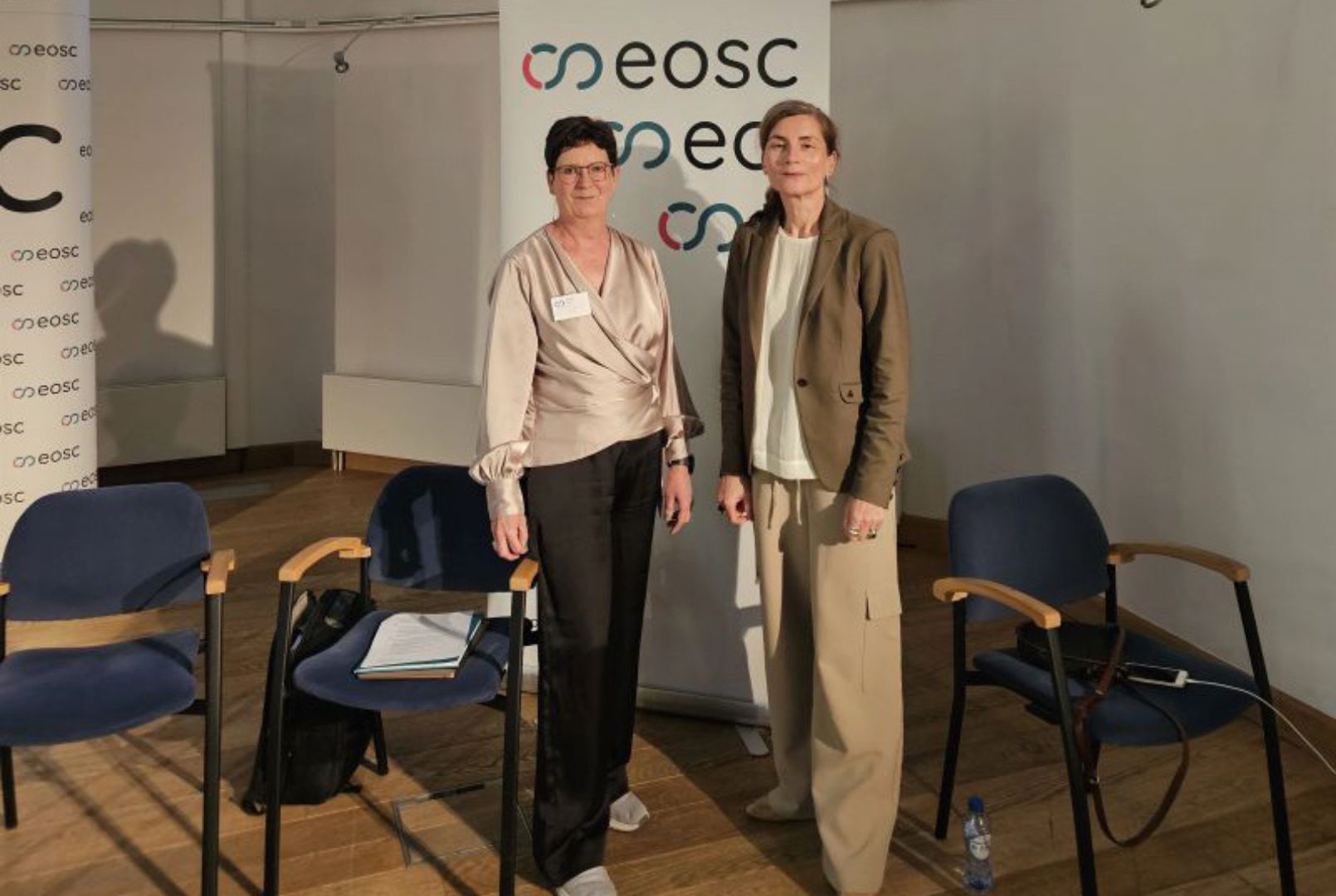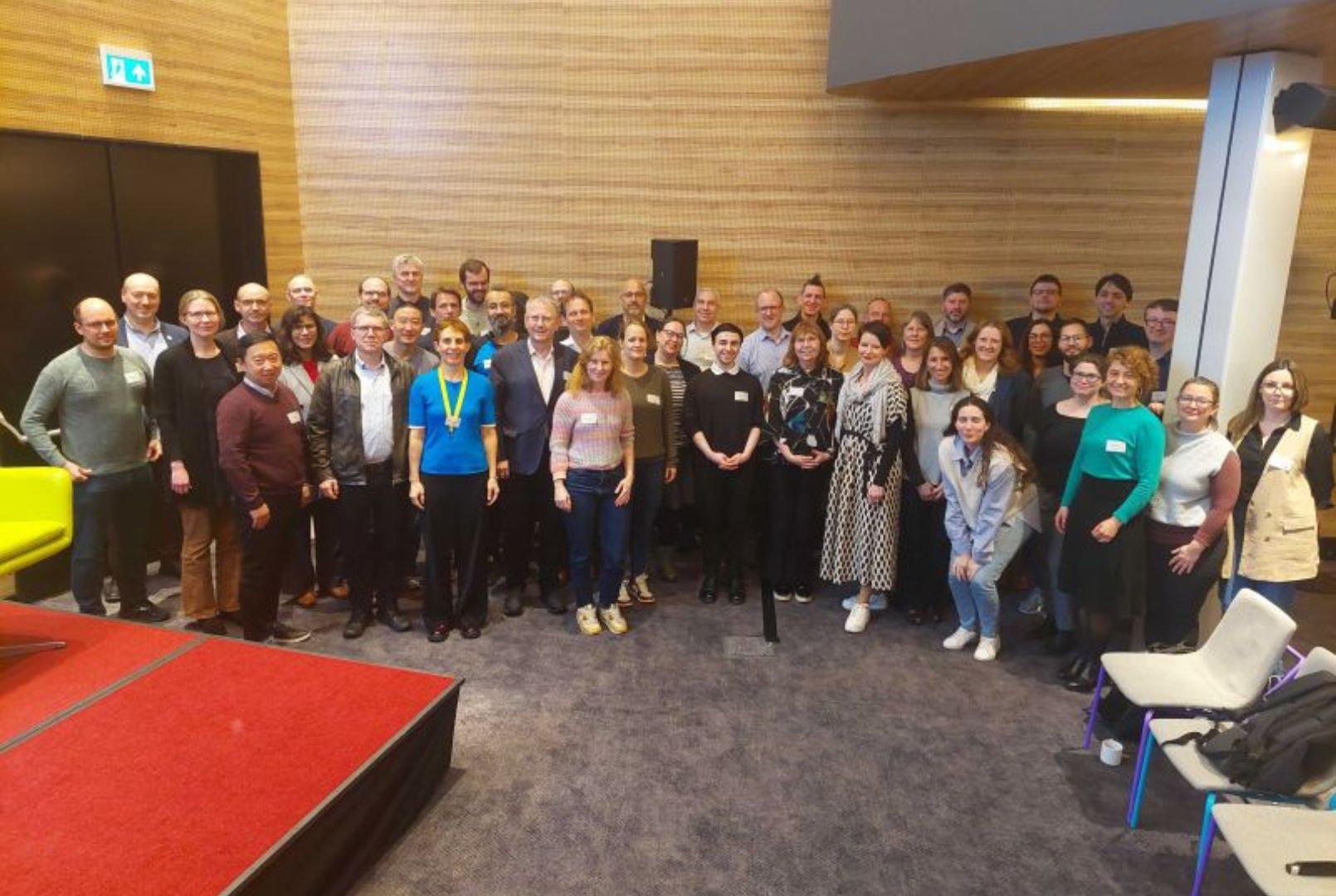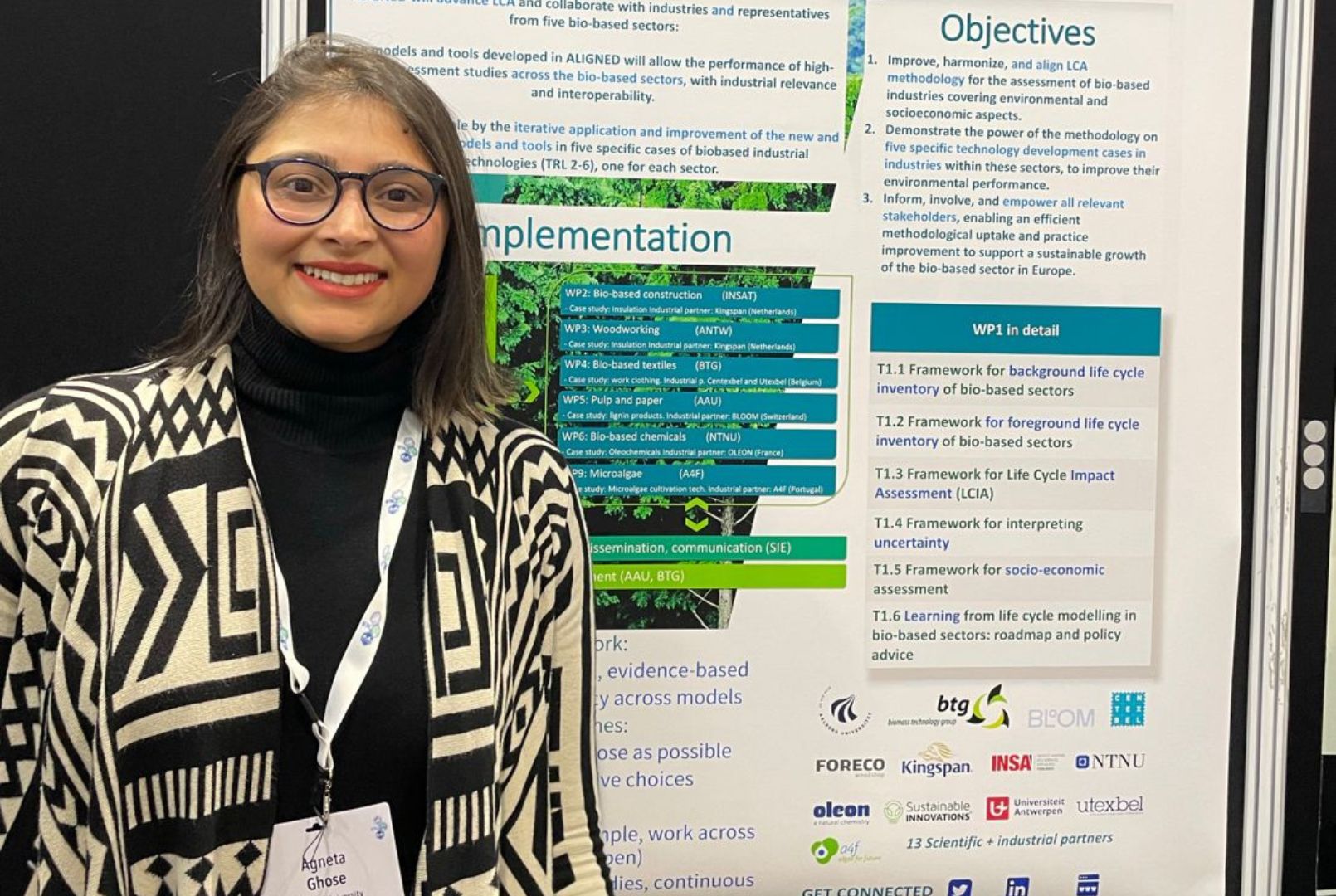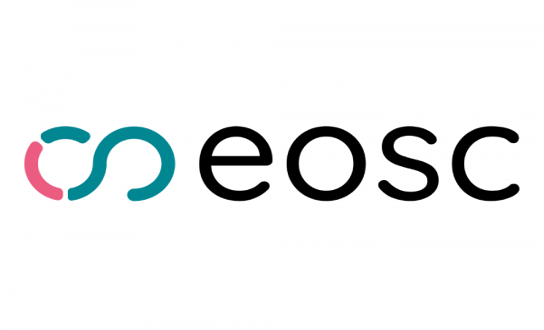
The idea with the European Open Science Cloud is that the infrastructure must be accessible and used across national borders and subject areas, i.e. be an internet of FAIR data and services.
As part of EOSC, projects are funded with the aim of promoting Open Science and FAIR principles. DeiC participates in the EOSC Association and in several EOSC projects.
EOSC Association
The EOSC Association is the legal entity behind the EOSC Partnership that European institutions can sign up to pay a membership fee. DeiC has been appointed by the Ministry of Education and Research to be a Danish “mandated member”, i.e. to represent Denmark in the association. In addition, the Danish Agency for Education and Research is part of the EOSC Steering Board.
DeiC participates to varying extents, along with the universities, in a range of Horizon Europe projects associated with EOSC.
FAIR-IMPACT
The EOSC project FAIR-IMPACT identifies and designs practical solutions, guidelines, and frameworks to realize an EOSC of FAIR data and services. The path to achieving this goal involves supporting the implementation of FAIR tools and services across scientific communities at the European, national, and institutional levels. Efforts are made to connect knowledge across scientific domains concerning persistent identifiers (PIDs), metadata, ontologies, metrics, as well as certification and interoperability aspects. The project started on June 1, 2022, and brings together 28 partners from 11 countries. The FAIR-IMPACT project includes 7 work packages:
- WP1: Project management, synchronization, and sustainability (Contact at DeiC Anne Sofie Fink (anne.sofie.fink@deic.dk)
- WP2: Engagement, adoption, and implementation (Contact at DeiC Sandra Boerman (Sandra.Boerman@deic.dk)
- WP3: Persistent identifiers (Contact at DeiC René Belsø (Rene.Belso@deic.dk)
- WP4: Metadata and ontologies
- WP5: Metrics, certification, and guidelines (Contact at DeiC Hannah Mihai (hannah.mihai@deic.dk)
- WP6: Interoperability (Contact at DeiC Anne Sofie Fink (anne.sofie.fink@deic.dk), Bo Bai (bo.bai@deic.dk)
- WP7: Dissemination, exploitation, and communication (Contact at DeiC Sandra Boerman (Sandra.Boerman@deic.dk)
Through our participation in FAIR-IMPACT, we collect, utilize, and share new knowledge about FAIR practices for the benefit of research projects and collaboration nationally.
SKILLS4EOSC
Skills4EOSC gathers experiences from national, regional, institutional, and thematic Open Science (OS) and data competence centers from 18 European countries with the aim of uniting the current competency-building landscape into a common and trusted pan-European ecosystem. The goal is to accelerate the upskilling of European researchers and data managers in FAIR and Open Data, intensive data science, and Scientific Data Management. Danish participants include AU, AAU, CBS, DTU, SDU, KB, and DeiC.
The Skills4EOSC project consists of 9 work packages:
- WP1 – Project management
- WP2 – OS career profiles, skill sets, and material: landscaping, certification & QA
- WP3 – OS training for evidence-based policy and public administration
- WP4 – Curricula and learning paths for Open Science ready Institutions
- WP5 – OS skills for RIs and thematic communities
- WP6 – Professional Networks for lifelong learning
- WP7 – European Competence Centres and user support networks
- WP8 – Synergies, stakeholder engagement, advocacy, and communications
- WP9 – Ethics requirements
The contact for SKILLS4EOSC at DeiC is René Belsø (Rene.Belso@deic.dk).
The overall Danish contribution (42 PM) is modest and distributed across several Work Packages, Tasks assigned to the 7 Danish participants (AU, AAU, CBS, DTU, SDU, KB, DeiC). This setup means that the benefits of participation will primarily be local, but both the project's content and Danish participation can serve as a good starting point for potential national collaboration on Data Stewardship and data management competence, such as in the extension of the national FAIR strategy.
SUBMERSE
Submerse unites foreign infrastructure providers and researchers in a joint research project. The primary purpose of the project is to leverage the seabed's internet cables as sensors for detecting ocean movements. The project installs measuring instruments at selected locations along the cables to collect data of interest for various research areas, such as physical oceanography, marine biology, and seismology.
A particular challenge in this type of data collection is the need for the rapid publication of large amounts of data to researchers, for example, in areas like tsunami warning systems. At the same time, data must be filtered for potentially sensitive information, such as military applications, and appropriate storage methods must be established. This knowledge of new technologies is beneficial for Danish researchers and interesting for institutions such as GEUS (Geological Survey of Denmark and Greenland), as well as the geoscientific departments at Aarhus University and the University of Copenhagen.
DeiC leads the Data Lifecycle task and develops Horizon Europe's required Data Management Plans (DMPs). DEIC also coordinates data management between technical and research-related tasks and collaborates with the Ethics and Security task. In addition to this, the project promotes collaboration between DeiC and Nordic and European research network providers.
If you want to know more?
You can sign up for DeiC's newsletter, which regularly includes EOSC-related news, or join the EOSC Denmark Coordination Forum.
Feel free to contact the leader of data management at DeiC, Anne Sofie Fink.
